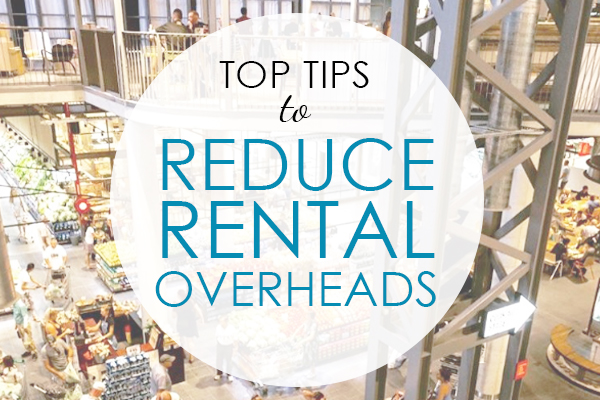Rental overheads are the biggest challenge keeping retailers awake at night, according to Inside Retail’s 2017 Australian Retail Outlook. Leasing expert, Kyle Swain, explores the current issues and trends in leasing and the best ways for retailers to negotiate better terms.
By Kyle Swain, The Leasing Department
Last week, we examined the issues and trends making rental overheads one of retail’s biggest challenges, and I spoke of the top three things retailers should consider when seeking to reduce and manage their rental overheads:
- Never pay the ‘recommended retail price’
- Every ‘lease event’ is an opportunity to re-align lease terms with market conditions
- Lease terms can be negotiated mid-term.
Read the whole series:
- Retail’s biggest challenge
- Never pay recommended retail price
- Maximise lease events
- Negotiate mid-term
PART 2
Never pay the ‘recommended retail price’.
The base rent per annum proposed on an initial lease offer has nothing to do with the rent your business should be paying for a retail premises. Most lessees think they’ve negotiated a favourable outcome if they can reduce this figure by a few percent or ‘round it down’.
Instead, think of the proposed rent on an initial lease offer from a landlord like the ‘recommended retail price’ on a new car. It is rarely the price the smart buyer ends up paying, rather a starting point to begin the negotiations. The goal of the buyer (lessee or retailer) is to pay as little as possible and get as many ‘extras’ as possible; while the seller (lessor or landlord) may be prepared to drop their initial asking price depending on what extras they need to throw in.
When negotiating a retail lease, the rent you offer the landlord should have nothing to do with the landlord’s initial offer and everything to do with what your business can afford to pay.
Key to this is ensuring the gross rent you agree to for the first year is a percentage of your forecast turnover in that premises, benchmarked against your own best performing stores, or other retailers of the same type in similar premises or centres. If you can get this right, and achieve your sales forecast, your business’ occupancy cost ratio (OCR) will be at an easily sustainable level and provide a solid foundation for a profitable business.
Landlords expect there to be negotiations around the various components of the commercial terms which make up a lease agreement such as fit-out incentives, lessor works, turnover rent and so on. In many cases, negotiations can result in significant reductions in the base rent. There may also be cases where a lessee agrees to pay a higher base rent in favour of achieving other benefits as part of the deal.
An example of this may be when a landlord agrees to pay a large up-front, fit-out incentive with some (or all) of these costs being amortised into the rent over the term of the lease. As with all lease deals, this only works when it suits both parties’ financial strategy. For a retailer, it vastly reduces capital costs up front so they can start their business with less ‘seed funding’ or at least reduce their capital finance and corresponding repayments (operating expenses) over the lease term.
The trick in these cases, is to still adhere to the golden rule of ensuring the total rent you pay as a percentage of your turnover (occupancy cost ratio) is still sustainable by the business and not eroding profit.
Remember, your initial lease offer should always be about what your business is going to be able to afford, and not what the landlord wants you to pay. Thereafter it’s a negotiation process until a mutually agreeable position is achieved – or you decide to walk away from the deal.
Tune in next week, when we’ll explore how every ‘lease event’ is an opportunity to re-align lease terms with market conditions.
Register now for our online webinar ‘Tackling rental overheads’ . 
Free for NRA members
In this interactive webinar, Kyle Swain will discuss his top tips for negotiating better lease terms and reducing your overheads. There will also be a Q&A session at the end of the webinar so you can ask those burning questions about all things tenancy and leasing. So, if you’ve been wanting to know more about what you can do to minimise your rent and make sure you’re paying the rent amount that is right for your business, here’s your chance to speak with an expert.
Register here for the webinar >>
NRA members can also contact The Leasing Department for a 15 minute complimentary consultation. Following initial contact, members can choose to formally engage The Leasing Department to act on their behalf.


